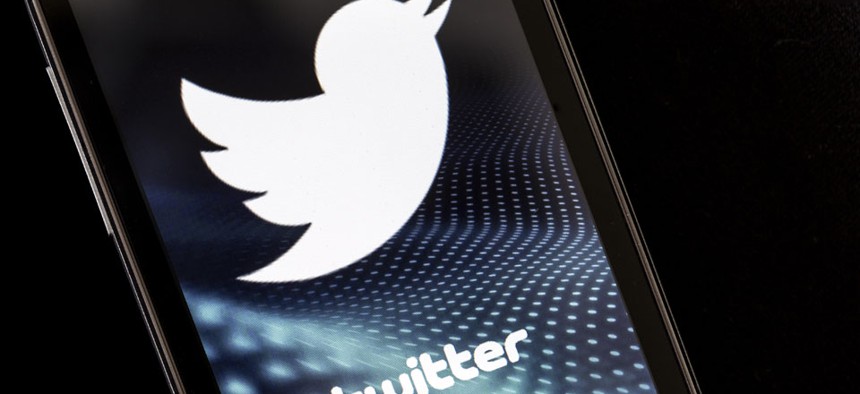Twitter Sues the Government to Disclose More About Spying

Quka/Shutterstock.com
Twitter’s legal action breaks from an agreement other tech giants made with the government earlier this year.
Twitter announced Tuesday that it is suing the Justice Department and the FBI on grounds that restrictions placed on its ability to disclose information about government surveillance orders violate the First Amendment.
"As part of our latest transparency report released in July, we described how we were being prohibited from reporting on the actual scope of surveillance of Twitter users by the U.S. government," wrote Ben Lee, a Twitter vice president, in a blog post. "Our ability to speak has been restricted by laws that prohibit and even criminalize a service provider like us from disclosing the exact number of national security letters ("NSLs") and Foreign Intelligence Surveillance Act ("FISA") court orders received—even if that number is zero."
Twitter's decision to file a lawsuit in federal court in California breaks from five technology companies that earlier this year brokered an agreement with the government permitting them to reveal more details about the data requests they receive from intelligence agencies.
That agreement—made with Google, Microsoft, and others—allows Internet companies to publicly report requests they receive, but only within broad ranges, such as bands of 1,000. Even if a company received zero requests under a certain surveillance order, for example, the disclosure could only read as 0 to 999.
Those relaxed restraints have been regularly criticized by some tech companies, including Twitter, and transparency advocates as not going far enough. In its lawsuit, the social-media giant is seeking to have those restraints ruled unconstitutional.
"It's our belief that we are entitled under the First Amendment to respond to our users' concerns and to the statements of U.S. government officials by providing information about the scope of U.S. government surveillance—including what types of legal process have not been received," Lee wrote. "We should be free to do this in a meaningful way, rather than in broad, inexact ranges."
In a brief statement, the Justice Department indicated it stood by the existing reporting requirements.
"Earlier this year, the government addressed similar concerns raised in a lawsuit brought by several major tech companies," a spokeswoman said. "There, the parties worked collaboratively to allow tech companies to provide broad information on government requests while also protecting national security."
Twitter has long been among the most vocal of tech giants to advocate for the need for more transparency in disclosing information about the government's data requests, an issue that has assumed greater attention since Edward Snowden's leaks began in the summer of 2013.
The suit follows several months of trying to reach an out-of-court disclosure deal with the government, an effort that ultimately proved fruitless for both parties.
Privacy and civil-liberties advocates quickly cheered Twitter's decision.
"We hope that other technology companies will now follow Twitter's lead," said Jameel Jafeer, deputy legal director at the American Civil Liberties Union, in a statement. "Technology companies have an obligation to protect their customers' sensitive information against overbroad government surveillance, and to be candid with their customers about how their information is being used and shared."
The Justice Department was not immediately available for comment.
\
(Image via Quka/Shutterstock.com)






